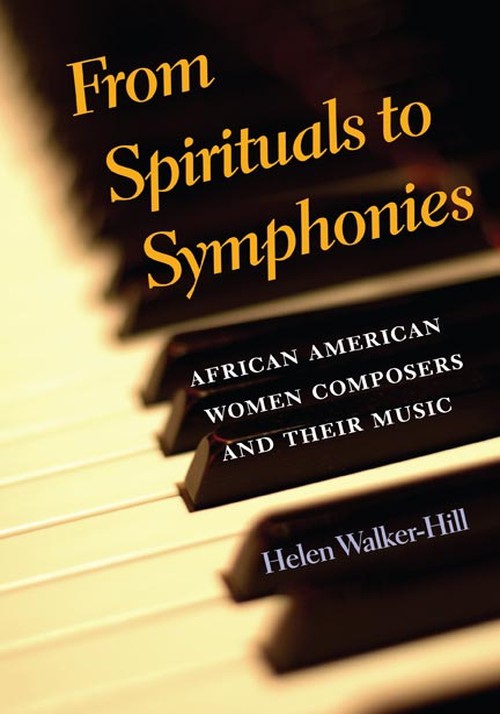
From Spirituals to Symphonies
African-American Women Composers and Their Music
Exploding the assumption that black women's only important musical contributions have been in folk, jazz, and pop
Paper – $28
978-0-252-07454-7
Publication Date
Paperback: 04/09/2007
About the Book
Helen Walker-Hill's unique study provides a carefully researched examination of the history and scope of musical composition by African-American women composers from the nineteenth and twentieth centuries. Exploding the assumption that black women's only important musical contributions have been in folk, jazz, and pop, From Spirituals to Symphonies focuses on the effect of race, gender, and class, and notes the important role played by individual personalities and circumstances in shaping this under-appreciated category of American art. The study also provides in-depth exploration of the backgrounds, experiences, and musical compositions of eight African-American women including Margaret Bonds, Undine Smith Moore, and Julia Perry, who combined the techniques of Western art music with their own cultural traditions and individual gifts. Despite having gained national and international recognition during their lifetimes, the contributions of many of these women are today forgotten.About the Author
Helen Walker-Hill has taught at the University of Colorado, Muhlenberg College, and the University of Wyoming. She currently lives in Evergreen, Colorado. Her previous publications include Piano Music by Black Women Composers: A Catalog of Solo and Ensemble Works.Reviews
"This excellent and beautifully produced publication will immediately interest those working in music history and women's studies. It is an exemplary study of significant composers born between 1904 and 1956. . . . Essential."--Choice"Walker-Hill's writing about the lives and music of these composers is clear and accessible to the general public. . . . It serves as an excellent starting point for research by future scholars."--Journal of African American History
"A reliable, well-written, and scholarly reference text." --Wisconsin Public Radio









